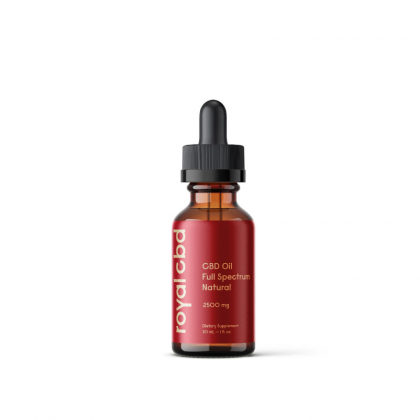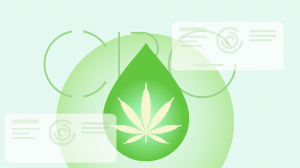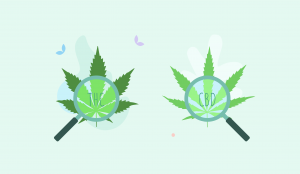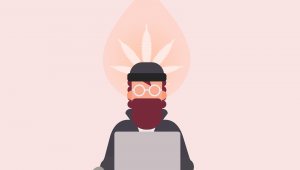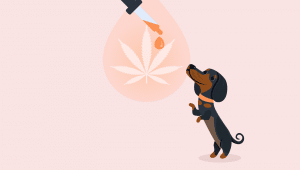| Total CBD: | 500 – 2500 mg |
| Potency: | 16.6 - 83.3 mg/mL |
| Cost per mg CBD: | $0.12 – $0.18 |
| Extract Type: | Full-spectrum |
| THC Content: | <0.3% |
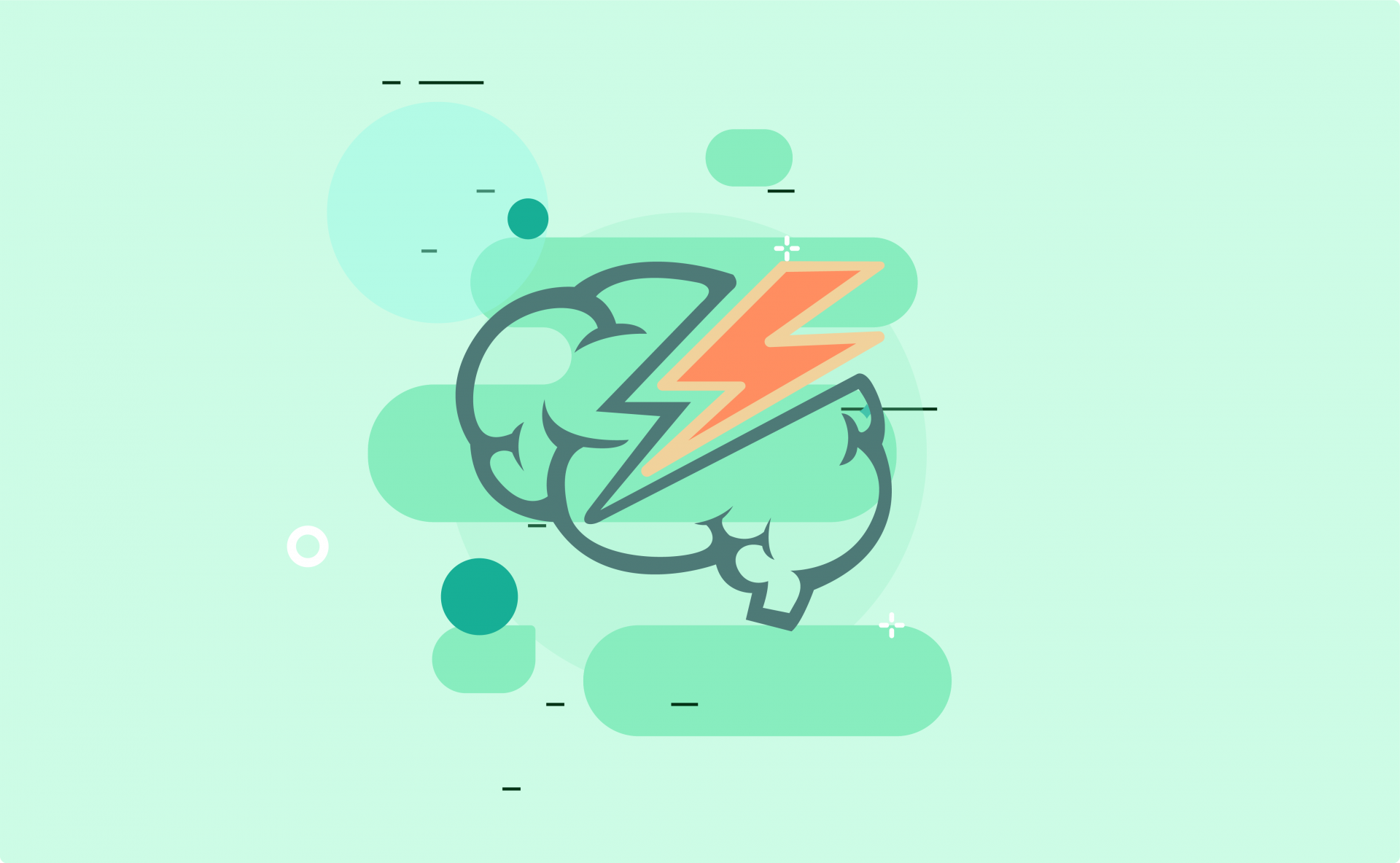
Evidence based
CBD & Brain Damage: Can CBD Help With Traumatic Brain Injury (TBI)?
Recent research has shown promising results of cannabidiol (CBD) as an effective treatment for a wide range of symptoms due to traumatic brain injury.
Traumatic brain injury (TBI) affects over 69 million people around the world each year [1].
Survivors of traumatic brain injuries face a range of long-term difficulties including physical impairment, cognitive difficulties, personality changes, and mental illness, not to mention the emotional stress endured during recovery.
Unfortunately, most treatments and medications are ineffective and come with a host of unwanted side effects.
This is where CBD may be able to help. There’s evidence it can alleviate a wide range of health conditions related to TBI — such as epileptic seizures, anxiety, sleep disorders and inflammation of the brain.
Here, we discuss TBI and the potential role of CBD in managing recovery and improving quality of life.
Can CBD Oil Help With Traumatic Brain Injury?
The hours and months following TBI are a critical time of ever-changing biochemical events in the brain. Research has discovered that the endocannabinoid system modulates several of the key secondary injury cascades following TBI.
Given its multiple positive effects, CBD can be beneficial for TBI patients that have found medications such as opiates, anticonvulsants, or antidepressants inadequate in treating their symptoms.
Of course, it’s important that you first discuss with your doctor before taking any other drugs or treatments while rehabilitating from a serious head injury.
Evidence has shown that the ECS is activated in response to injury and trauma, suggesting that it’s a significant part of the brain’s repair mechanisms. For example, CBD has been found to have neuroprotective effects in Alzheimer’s disease and Parkinson’s disease, multiple sclerosis and epilepsy.
Promising studies in mice have found that short term (2-7 days) treatment with CBD prevents cognitive and emotional impairment, and continues to reduce neuroinflammation for a further 21 days after TBI [3].
The potential benefits of CBD oil for traumatic brain injuries (TBI) includes:
- Protects the brain cells from damage
- Reduces inflammation in the brain
- Alleviates anxiety & depression
- Alleviates chronic pain
1. Protects The Brain Cells From Damage
Advances in neuroscience research have revealed the mechanisms that lead to TBI’s neurological symptoms such as poor motor control, cognitive decline and post-traumatic epilepsy.
Multiple changes occur to neuronal circuits of the brain within minutes after head trauma. While damage to brain cells starts immediately after the event, other changes in neurotransmitters can happen gradually, particularly after mild impact.
Neurotransmitters influence neurons in one of three ways:
- Excitatory — increases activity
- Inhibitory — decreases the activity
- Modulatory — can either increase or decrease the activity
Glutamate is a major excitatory neurotransmitter, and γ-aminobutyric acid (GABA) is the major inhibitory neurotransmitter. It’s crucial that these two neurotransmitters remain in balance for the brain to function normally.
Within the first hour after a TBI event, glutamate responds in either of two ways:
- Glutamate is released immediately following the injury and something known as glutamate-induced neurotoxicity occurs, causing neuronal injury, cell death and dysfunction of the surviving neurons.
- Glutamate release is delayed, this leads to cognitive and motor (muscle) dysfunction.
This neurotransmitter disruption initiates a cascade of events that wreak havoc on normal cellular function.
New research has found that CBD can protect against this glutamate-induced cell death, by reducing oxidative stress and preserving brain cells, leading to faster healing and recovery [4].
2. Reduces Inflammation In The Brain
The ECS system plays an important role in the regulation of inflammation, and CBD has long been recognized for its powerful anti-inflammatory properties.
In TBI, an immediate inflammatory response occurs, causing significant neuroinflammation and neurodegeneration — neuro, as in neurons in the brain. Damage to the brain causes activation of microglial. These specialized cells are macrophages that clean up any dead neurons and release inflammatory chemicals. Acute neuroinflammation is meant to limit further injury to the brain and start the repair process.
Chronic neuroinflammation, which can be one of the side effects of brain injuries, leads to prolonged microglial activity. This results in increased oxidative stress and neuronal damage or death.
The cannabinoids exert their anti-inflammatory effects in a few different ways, including:
- Lowering excitotoxicity (glutamate-induced)
- Inducing apoptosis (programmed cell death to remove diseased or damaged cells)
- Enhancing vasodilation (improving blood flow to the area to speed healing)
- Decreasing pro-inflammatory cytokines (reducing overall inflammation in the brain)
- Inhibition of cell proliferation (preventing further destruction of the brain tissue)
3. Alleviates Anxiety & Depression (Side-Effects of TBI)
Individuals with TBI frequently suffer from behavioral issues, anxiety, and depression.
In fact, two-thirds of TBI patients receive antidepressant medications during their rehabilitation [5].
Depression may result from changes in neurotransmitter levels, post-injury, in the brain. An emotional response to the TBI can also influence mental health, as the person struggles with a temporary or permanent disability, loss of employment, or family/social issues.
Whether depression is caused by the initial injury or a combination of both injury and the resulting stress of recovery, CBD is well studied for its calming action without the psychoactive effects of THC [6].
It’s thought that one of the primary ways CBD works to relieve symptoms of depression and anxiety is by inhibiting the reuptake of certain neurotransmitters. However, it is important to note that CBD only has these effects on certain parts of the brain [7].
Now that we’ve explained the benefits of CBD, let’s take a look at TBI in a little more detail and how CBD can be used to help.
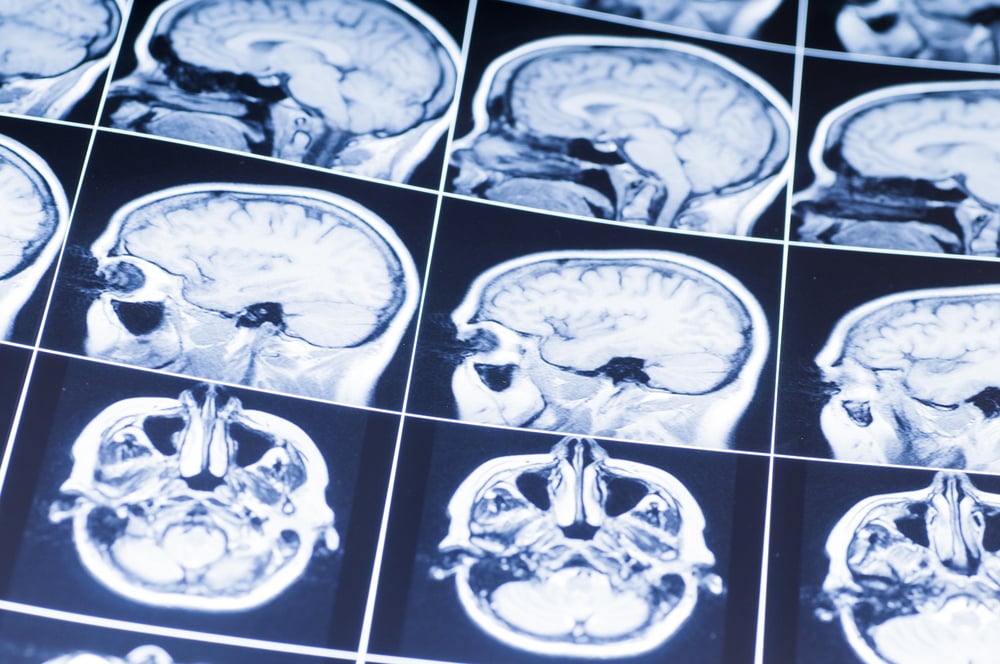
What is Traumatic Brain Injury (TBI)?
TBI usually occurs as a result of a violent blow or jolt to the head or body, caused by an external force.
Causes commonly include:
- Car accidents
- Falls
- Physical assault
- Being struck by an object during sport
- Fights
TBI can be incredibly complex — the injury severity, location, type, individual’s age, and gender, all make up a unique brain picture, with no two TBI’s the same.
TBI can range from mild to severe — the latter resulting in permanent brain damage that can lead to lifelong disability. Outcomes of brain injuries vary between individuals — often leading to more than just the physical impairments, but also significant behavioral and emotional side-effects.
Primary brain injury is the damage that occurs to the brain after the initial impact. However, a cascade of events may trigger secondary injury resulting in ongoing cellular damage to the brain, which is responsible for many of the neurological issues associated with TBI.
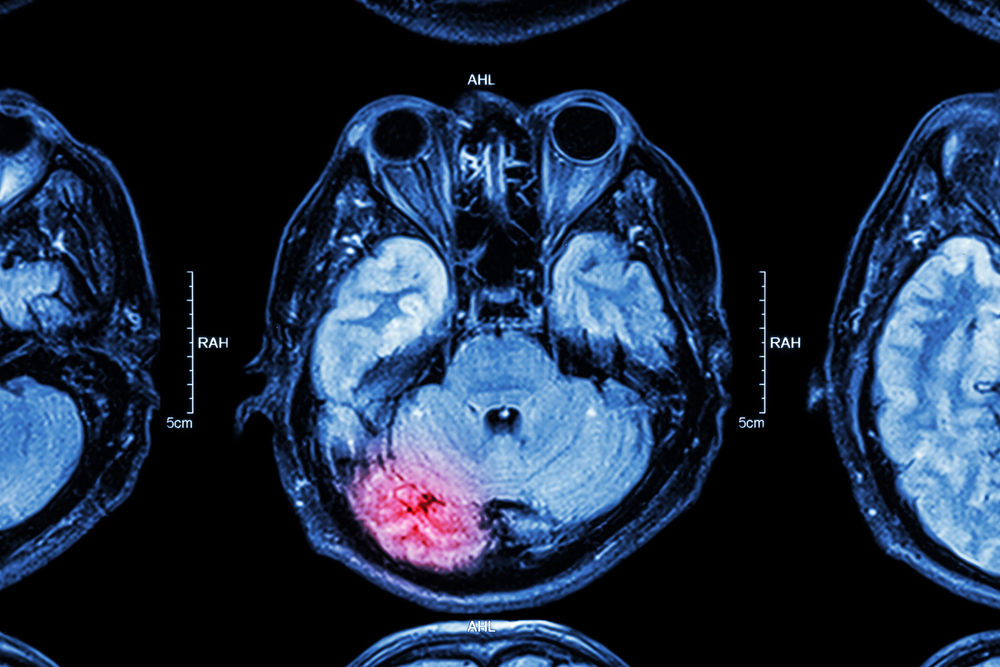
Symptoms of Traumatic Brain Injury (TBI):
- Severe pain
- Hyperarousal (low mood and energy levels)
- Sleep disorders
- Behavioral changes
- Mood swings
- Muscle spasticity
- Convulsions and seizures
- Confusion
- Cognitive dysfunction
- Impaired learning and memory
Symptoms of TBI Varies Depending on What Region is Affected
- Injury to the frontal lobes will cause changes in behavior and loss of cognitive functions.
- Injury to the cerebellum will cause loss of balance and coordination.
- Injury to the brainstem causes changes in heart rate and arousal.
Symptoms of mild to moderate TBI can include headaches, dizziness, nausea, and amnesia — these injuries usually resolve within days to weeks after the incident. In some cases, these injuries can also lead to long-term neurological issues.
How is TBI Diagnosed?
TBI can range from mild to severe brain damage.
Therefore, the importance of accurately assessing the severity of a TBI is vitally important for prognosis and management.
The management of major TBI may require surgery to remove blood clots, repair skull fractures, and relieve pressure from the skull. Magnetic resonance imaging (MRI) is used to determine the extent of brain injury.
The most commonly used clinical test to assess the severity of TBI is the Glasgow Coma Scale (GCS).
The GCS is a neurological scale, in which patients are scored on the basis of clinical symptoms, and the resulting overall score classifies their injury as:
- Mild: score 13–15
- Moderate: score 9–12
- Severe: score <9
For the following months after the injury, patients are often vulnerable to developing behavioral, mood and anxiety disorders.
Current Treatment Options for TBI
There are no standardized treatments for TBI. Treatments are determined by the prescribing doctor based on the symptoms that present.
Once a patient is stable, depending on symptoms, treatment usually relies on prescription ‘psychotropic’ medications — meaning, drugs that affect a person’s mental state.
Treatment can be a combination of drugs and may involve some trial and error.
Common Medications for Traumatic Brain Injury:
- Narcotic analgesics (oxycodone, fentanyl, tramadol, morphine, methadone)
- Antidepressants (sertraline, fluoxetine, citalopram)
- Anxiolytics (alprazolam, diazepam, estazolam)
- Hypnotics (temazepam, flurazepam)
- Stimulants (amphetamines, caffeine)
- Antipsychotics (quetiapine, cariprazine, lurasidone)
- Antiparkinson agents (levodopa, amantidine)
Most pharmaceutical options remain ineffective — and often come with unwanted side effects. CBD interacts with many drugs, so always check with a doctor before using it as a treatment.
Common Side Effects of Medications:
- Weight gain
- Blurred vision, dry mouth
- Muscle spasms or tremors
- Low mood
- Sleep disturbances
- Sexual dysfunction
- Drowsiness
- Increased risk for diabetes mellitus (type 2), coronary heart disease, and stroke
Common Types of Therapy for Traumatic Brain Injury
Patients with TBI can benefit from a multifaceted approach to treatment, with therapies including:
- Physical therapy
- Occupational therapy
- Cognitive therapy
- Speech therapy
- Psychological counseling
- Vocational counseling
What Dose of CBD Oil Should I Take?
If you’re using CBD oil for the first time, it’s important to start with a low dose and increase the dosage gradually.
As we are all different, the dosage will vary with each individual. Start low, and go slow.
Use our CBD oil dosage calculator to find the optimal dose for you based on your weight and desired level of effects.
CBD Oil Dosage Calculator
How Long Does It Take For CBD Oil To Work For TBI?
Some of the benefits of CBD oil work right away — such as its benefits on anxiety or pain — others can take several months of steady use before you start to see improvement.
Be patient and persistent with your dose. It helps to take notes about how you’re feeling every few days to track your progress. The road to recovery can be a long one after TBI.
Are There Any Side-Effects of CBD?
The side effects of CBD are usually very mild and may include things like dry mouth, dizziness, or low blood pressure.
The World Health Organisation (WHO) states that CBD oil, in its pure state, does not cause harm or have the potential for abuse even at high doses.
Of course, the research we have discussed here is based on using high-quality CBD. It’s important you make sure you use a high-quality CBD product that is free from contaminants and artificial additives.
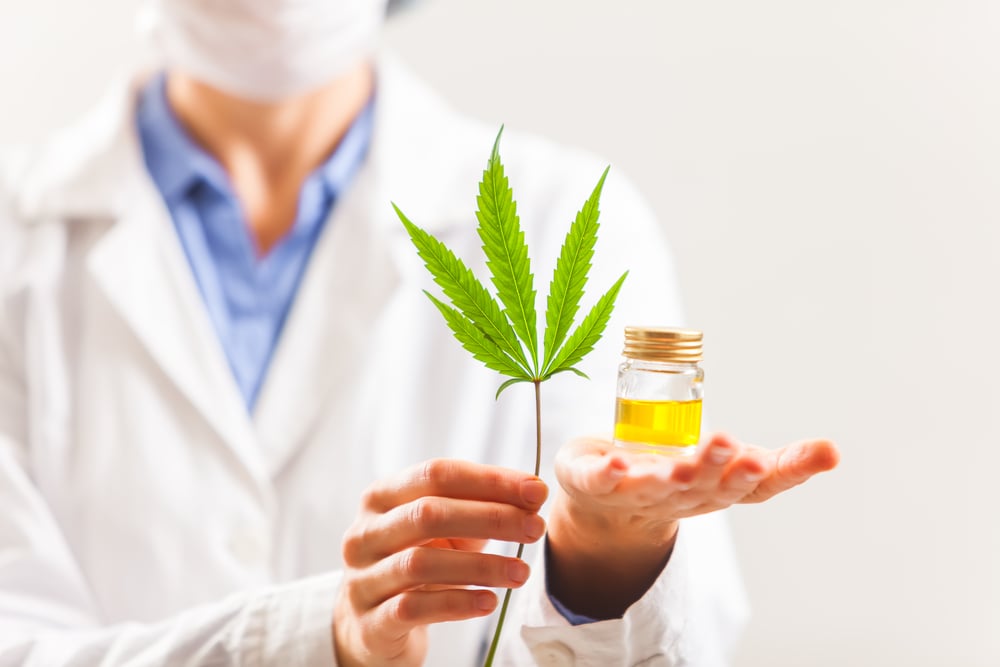
Key Takeaways: Using CBD For Traumatic Brain Injury
More human trials are needed, but as you can see, CBD study results are very bright indeed. CBD is promising to be a safe, and effective treatment for many of the symptoms of TBI.
TBI can affect someone both physically and mentally. It can forever change someone’s relationships, employment, finances, and social interactions.
Cognitive and emotional dysfunctions are often among the most devastating consequences of TBI. Because TBI is complex, there is no cure or single drug that can be used to treat the many and varied symptoms. There is good evidence that CBD may be an effective treatment in preserving brain cell function and other debilitating side effects of TBI, thus improving quality of life.
References Cited In This Article
- Dewan, M. C., Rattani, A., Gupta, S., Baticulon, R. E., Hung, Y.-C., Punchak, M., … Park, K. B. (2018). Estimating the global incidence of traumatic brain injury. Journal of Neurosurgery, 1–18. https://doi.org/10.3171/2017.10.JNS17352
- Schurman, L. D., & Lichtman, A. H. (2017). Endocannabinoids: A Promising Impact for Traumatic Brain Injury. Frontiers in pharmacology, 8, 69. doi:10.3389/fphar.2017.0006
- Mori, M. A., Meyer, E., Soares, L. M., Milani, H., Guimarães, F. S., & de Oliveira, R. M. W. (2017). Cannabidiol reduces neuroinflammation and promotes neuroplasticity and functional recovery after brain ischemia. Progress in Neuro-Psychopharmacology and Biological Psychiatry, 75, 94–105. https://doi.org/10.1016/J.PNPBP.2016.11.005
- Schurman, L. D., & Lichtman, A. H. (2017). Endocannabinoids: A Promising Impact for Traumatic Brain Injury. Frontiers in Pharmacology, 8, 69. https://doi.org/10.3389/fphar.2017.00069
- Hammond, F. M., Barrett, R. S., Shea, T., Seel, R. T., McAlister, T. W., Kaelin, D., … Horn, S. D. (2015). Psychotropic medication use during inpatient rehabilitation for traumatic brain injury. Archives of Physical Medicine and Rehabilitation,96(8), S256–S273e14. https://doi.org/10.1016/j.apmr.2015.01.025
- Blessing, E. M., Steenkamp, M. M., Manzanares, J., & Marmar, C. R. (2015, October). Cannabidiol as a Potential Treatment for Anxiety Disorders. Neurotherapeutics. Springer. https://doi.org/10.1007/s13311-015-0387-1
- Crippa, J. A., Guimarães, F. S., Campos, A. C., & Zuardi, A. W. (2018). Translational Investigation of the Therapeutic Potential of Cannabidiol (CBD): Toward a New Age. Frontiers in immunology, 9, 2009. doi:10.3389/fimmu.2018.02009
More Health Benefits to Explore
-
Conditions Related to Health Benefits
- CBD For Allergies: Can This Cannabinoid Ease Symptoms?
- Top 10 CBD Oils For Back Pain
- Can CBD Help With Menstrual Cramps?
- CBD for Sciatica: How It Works, Safety, Drug Interactions, & Best Products
- Is CBD a Viable Treatment for Cerebral Palsy?
- CBD Oil For Sleep
- CBD For Psoriasis: Can CBD Help to Alleviate Symptoms?
- Traumatic Brain Injury (TBI)
- Arthritis
- Anxiety & Depression
- Weight Loss
- ADD & ADHD
- Anorexia
- Alzheimer’s Disease & Dementia
- Addiction
- ALS (Amyotrophic Lateral Sclerosis)
- Antibiotic Resistance
- Asthma
- Atherosclerosis
- Autism
- Acne
- Bipolar Disorder
- Pain
- Crohn's Disease & Ulcerative Colitis
- Diabetes
- Epilepsy
- Endocrine Disorders
- Fibromyalgia
- Fatty Liver Disease
- Glaucoma
- Hypertension
- Heart Disease
- Huntington's Disease
- Inflammation
- Irritable Bowel Syndrome (IBS)
- Kidney Disease
- Migraine Headaches
- Muscle Recovery
- Multiple Sclerosis
- Motion Sickness
- Metabolic Syndrome
- Neurodegeneration
- Cancer
- Nausea
- Neuropathic (Nerve) Pain
- Osteoporosis/Bone Health
- Obsessive-Compulsive Disorder (OCD)
- Polycystic Ovarian Syndrome (PCOS)
- PTSD
- Prion/Mad Cow Disease
- Premenstrual Syndrome (PMS)
- Parkinson’s Disease
- Schizophrenia
- Sickle Cell Anemia
- Stroke
-
Conditions Related to Products
- Ranking The Top 13 THC Gummies By Category (Δ8, Δ9, Δ10, HHC, & More)
- Top 10 CBD Oils For Back Pain
- Everything You Need to Know About CBD Sunscreen
- Top 7 CBD Gummies For Sleep & Insomnia
- Top 7 CBD Gummies To Help With Anxiety (2022)
- Best CBD Gummies For Pain (Top-Rated Pain Gummies For 2022)
- Best Hemp Cigarettes (Top 5 Nicotine-Free Smokes)
- Top 5 CBD Lip Balms For 2022
- The Top 7 CBD Face Masks for 2022
- The Best CBD Inhalers For 2022 (& How to Use Them)
- Best Full-Spectrum CBD Vape Juice: What to Look For & How to Use It
- CBD Eye Drops: New Option For Glaucoma?
- CBD Oil For Dogs With Arthritis
- Best CBD Massage Oils In 2022
- Buyer's Guide To The Best CBD Vape Kits In 2022
- CBD Chocolate: Yes, It Exists & It's Just as Divine as it Sounds
- CBD Pre-Rolls & Cigarettes
- Terpene Concentrates
- Best CBD Soaps
- Best CBD Shampoo & Conditioner
- Best CBD Juul Pods
- CBD Isolate Oils
- Full-Spectrum CBD Oils
- Best CBD Lube
- CBD Honey
- CBD Transdermal Patches
- Best Dry Herb Vaporizers
- CBD Oil For Dogs With Epilepsy
- CBD Oil For Dogs With Anxiety
- CBD Oil For Dogs With Cancer
- CBD For Horses
- CBD Chewing Gum
- CBD Pain Cream
- CBD Oil For Cats
- CBD Oil For Dogs
- CBD Hemp Flower
- CBD Suppositories
- Best CBD Gummies for Pain, Sleep & Anxiety Reviewed (2022)
- CBD Teas
- CBD Vape Pens
- CBD Vape Oils
- CBD Coffee
- CBD Drinks & Shots
- CBD Crystals
- CBD Skincare
- Best CBD Oil & Gummies For Kids: Is CBD Safe for Children with Anxiety & ADHD?
- CBD Concentrates
- CBD Bath Bombs
- CBD Capsules
- CBD Sprays
- CBD Dog Treats
-
Conditions Related to Topicals
-
Conditions Related to Oils & Tinctures
-
Conditions Related to Edibles
- Top 7 CBD Gummies To Help With Anxiety (2022)
- Best CBD Gummies For Pain (Top-Rated Pain Gummies For 2022)
- CBD Chocolate: Yes, It Exists & It's Just as Divine as it Sounds
- CBD Honey
- CBD Chewing Gum
- Best CBD Gummies for Pain, Sleep & Anxiety Reviewed (2022)
- CBD Teas
- CBD Coffee
- CBD Drinks & Shots
- CBD Capsules
-
Conditions Related to Gummies
- Ranking The Top 13 THC Gummies By Category (Δ8, Δ9, Δ10, HHC, & More)
- Top 7 CBD Gummies For Sleep & Insomnia
- Top 7 CBD Gummies To Help With Anxiety (2022)
- Best CBD Gummies For Pain (Top-Rated Pain Gummies For 2022)
- Best CBD Gummies for Pain, Sleep & Anxiety Reviewed (2022)
- Best CBD Oil & Gummies For Kids: Is CBD Safe for Children with Anxiety & ADHD?
-
Conditions Related to Hemp Flower
-
-
Conditions Related to Terpenes
-
-
Conditions Related to Cultivation
-
Conditions Related to Concentrates
-
Conditions Related to Delta 8 THC
-
Conditions Related to Delta 9 THC
-
-
-
-
Conditions Related to CBD
- Everything You Need to Know About CBD Sunscreen
- Top 7 CBD Gummies For Sleep & Insomnia
- Top 7 CBD Gummies To Help With Anxiety (2022)
- Best CBD Gummies For Pain (Top-Rated Pain Gummies For 2022)
- Best Hemp Cigarettes (Top 5 Nicotine-Free Smokes)
- Top 5 CBD Lip Balms For 2022
- The Top 7 CBD Face Masks for 2022
- The Best CBD Inhalers For 2022 (& How to Use Them)
- Best Full-Spectrum CBD Vape Juice: What to Look For & How to Use It
- CBD Eye Drops: New Option For Glaucoma?
- CBD Oil For Dogs With Arthritis
- Best CBD Massage Oils In 2022
- Buyer's Guide To The Best CBD Vape Kits In 2022
- CBD Chocolate: Yes, It Exists & It's Just as Divine as it Sounds
- CBD Pre-Rolls & Cigarettes
- Best CBD Soaps
- Best CBD Shampoo & Conditioner
- Best CBD Juul Pods
- CBD Isolate Oils
- Full-Spectrum CBD Oils
- Best CBD Lube
- CBD Honey
- CBD Transdermal Patches
- CBD Oil For Dogs With Epilepsy
- CBD Oil For Dogs With Anxiety
- CBD Oil For Dogs With Cancer
- CBD For Horses
- CBD Chewing Gum
- CBD Pain Cream
- CBD Oil For Cats
- CBD Oil For Dogs
- CBD Hemp Flower
- CBD Suppositories
- Best CBD Gummies for Pain, Sleep & Anxiety Reviewed (2022)
- CBD Teas
- CBD Vape Pens
- CBD Vape Oils
- CBD Coffee
- CBD Drinks & Shots
- CBD Crystals
- CBD Skincare
- Best CBD Oil & Gummies For Kids: Is CBD Safe for Children with Anxiety & ADHD?
- CBD Concentrates
- CBD Bath Bombs
- CBD Capsules
- CBD Sprays
- CBD Dog Treats
-
-
Conditions Related to THC-O
-
-
Conditions Related to Joint Health
-
Conditions Related to Pain Disorders
- Top 10 CBD Oils For Back Pain
- Can CBD Help With Menstrual Cramps?
- CBD for Sciatica: How It Works, Safety, Drug Interactions, & Best Products
- Traumatic Brain Injury (TBI)
- Arthritis
- Pain
- Fibromyalgia
- Glaucoma
- Inflammation
- Kidney Disease
- Migraine Headaches
- Multiple Sclerosis
- Neuropathic (Nerve) Pain
- Premenstrual Syndrome (PMS)
- Sickle Cell Anemia
-
Conditions Related to Autoimmune Disease
-
Conditions Related to Cognitive Health
-
Conditions Related to Metabolic Disorders
-
Conditions Related to Psychological Disorders
-
Conditions Related to Muscles & Bones
-
Conditions Related to Nervous System
- CBD for Sciatica: How It Works, Safety, Drug Interactions, & Best Products
- Is CBD a Viable Treatment for Cerebral Palsy?
- CBD Oil For Sleep
- Traumatic Brain Injury (TBI)
- Anxiety & Depression
- ADD & ADHD
- Anorexia
- Alzheimer’s Disease & Dementia
- Addiction
- ALS (Amyotrophic Lateral Sclerosis)
- Autism
- Bipolar Disorder
- Epilepsy
- Huntington's Disease
- Inflammation
- Migraine Headaches
- Multiple Sclerosis
- Motion Sickness
- Neurodegeneration
- Neuropathic (Nerve) Pain
- Obsessive-Compulsive Disorder (OCD)
- PTSD
- Prion/Mad Cow Disease
- Parkinson’s Disease
- Schizophrenia
-
-
Conditions Related to Reproductive Health
-
Conditions Related to Hormones & Endocrine
-
Conditions Related to Skin Health
-
Conditions Related to Cardiovascular System
-
Conditions Related to Digestive System
-
Conditions Related to Genetic Disorders
-
Conditions Related to For Children


